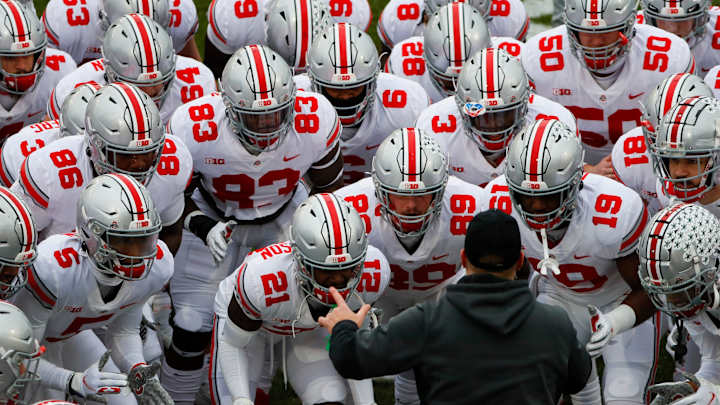Supreme Court's NCAA Takedown ``Will Change Everything''

The world seems to be getting crazier everywhere we turn.
. . . and that’s just sports.
Did we just see what’s supposed to be a seriously conservative Supreme Court throw a fastball at the NCAA’s head in its Alston v. NCAA decision?
In an op-ed column in the Washington Post, Donald H. Yee—a lawyer and partner with Yee & Dubin Sports, which represents professional athletes and coaches—predicted that the court’s decision ``will change everything.’’
The changes, he said, will be especially wrenching in college football:
``The biggest football schools will immediately explore leaving the NCAA altogether and forming a new league that pays players. I believe these discussions have been happening for a long time, but now, they will accelerate. The NCAA FBS football (a.k.a. Division I) includes 130 schools, but the reality is that perhaps only 25 or 30 have the budget and resources to play at the absolute highest level; the rest are schedule-fillers, notwithstanding the rare upset now and then. Alabama, Auburn, Ohio State, Clemson, USC, Michigan, Texas, Texas A&M, Oklahoma and the like will explore a Super League similar to the effort made by Europe’s top professional soccer clubs this spring. This new Super League of College Football will explore direct salary compensation of players, but probably only if they can get other “special” legislation that no other industry gets, such as exemption from workers’ compensation liability.
``Schools that don’t have major football programs will explore eliminating the sport. These schools know big programs don’t care about them, and they also know the majors are looking at programs that require more capital. Deploying a football team is enormously expensive, and the vast majority of non-majors simply shouldn’t be fielding one — if the players aren’t properly trained and equipped, it’s too dangerous. Many universities have ignored this, however, and gone ahead anyway. But Alston is going to supercharge the recruiting wars for talent, and many schools won’t, and shouldn’t, keep up.’’
The impact on non-revenue sports will be far-reaching, Yee predicted. The business models for Olympic sports will be undercut. Title IX, which has enabled the football-funded growth of women’s sports, will be in question.
``Football money largely pays for college coaches and top facilities, travel and resources,’’ Yee wrote. ``But if more of that cash goes to paying football players, the subsidies for Olympic sports will slow to a trickle. The federal government will have to make a choice about whether to use taxpayer dollars to fund Olympic sports, as many other countries do.
``Enormous battles over Title IX will come. Over the last generation, many men’s sports in college have been eliminated or drained of resources, and administrators often blamed Title IX compliance rules. At football-playing schools, the football team accounts for about 80 scholarships. That’s a lot for one sport. Title IX essentially mandates equal treatment and opportunity for female athletes, so many schools have founded and supported sports for women over the last generation to balance out football, while eliminating many men’s sports.
``Alston could play out one of two ways with respect to Title IX. If the major football schools opt out of the NCAA system completely, and their new model doesn’t rely on university funds or scholarships at all, they could eliminate many women’s sports because they won’t need to provide an equivalent number of women’s scholarships to match football scholarships. If non-major football schools drop their football programs, they might also drop women’s sports, for the same reason. Other schools may decide instead to deploy any funds that would have been spent on football to create even more opportunity for women.’’
Yee said he even expects viable developmental/minor-league alternatives to college football.
``Sports investors will come up with new opportunities for college athletes,’’ Yee said. ``Rapid change already is happening in this space, and it will accelerate. First, entrepreneurs, including me, have tried and will continue to try to develop an alternative, or supplemental league, for college football. Every other sport has such an alternative (like the NBA G League, or minor leagues in baseball, hockey and soccer), but football doesn’t — at least not yet. Players will finally have choices, outside the NCAA system. If these new efforts are successful, it could cause schools to drop other nonrevenue sports, such as volleyball, gymnastics and track and field. If this happens, however, private sports investors will look into creating new opportunities outside the NCAA system for athletes who play those sports, too. In a post-Alston world, the pie will grow larger.’’
I am not sure how much of this I expect to happen. As a lawyer/agent, Yee obviously has a large stake in the changes that are coming. But make no mistake. The college-athletics landscape will look very different sooner than later. Some of these ideas should be welcomed. The young people who play sports should have a larger voice, and a larger piece of the pie.
I thought the attempt to form a college players’ union, which started at Northwestern a few years back, was a good idea. I have felt for a long time that college football was headed toward one super-league of perhaps 64 schools divided into four conferences. Which was logical, whether it was preferable or not.
And I have never completely understood a financial system where football coaches make mega-millions overseeing programs that pay for gymnastics, wrestling and the kitchen sink. . . while the players who generate that revenue get. . . tuition, room and board, and a cheeseburger.
Looks like that is all about to change. That’s not necessarily a bad thing. Question is, how is going to play out?
